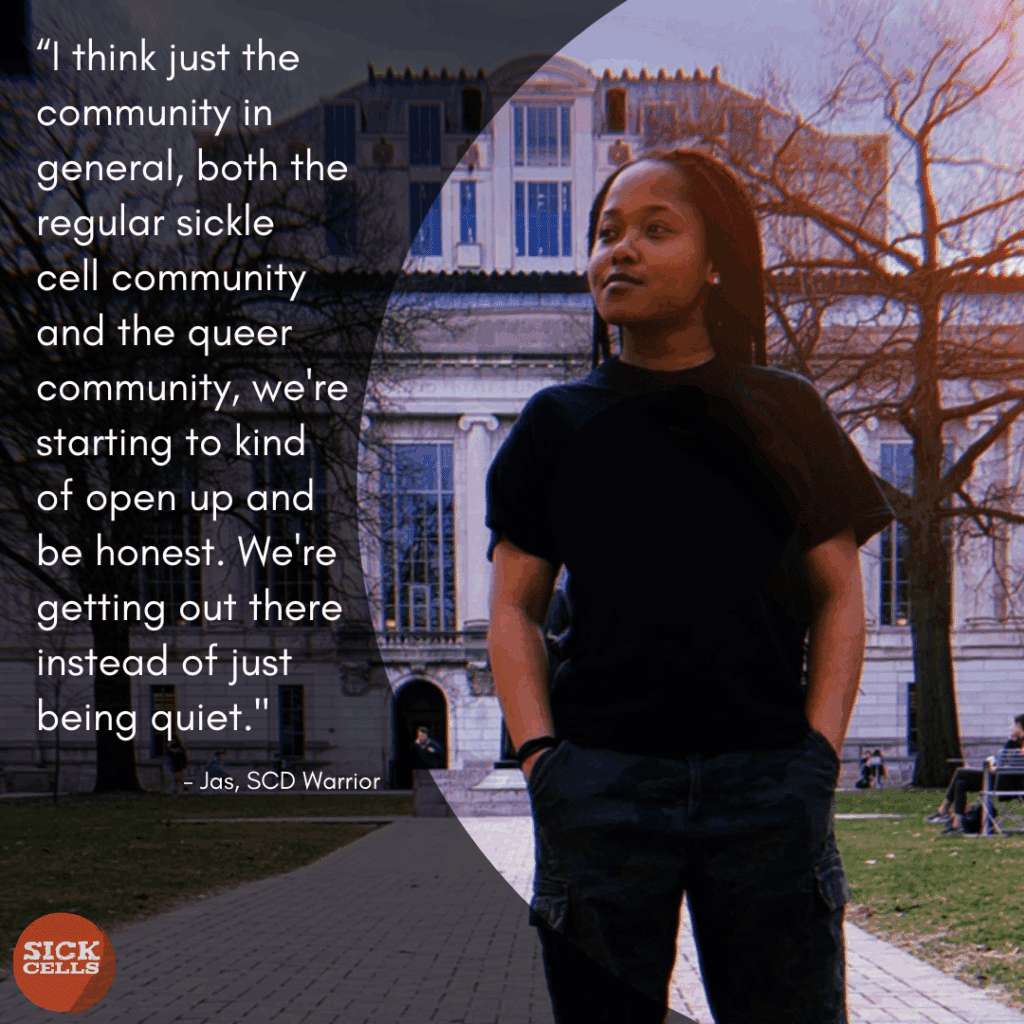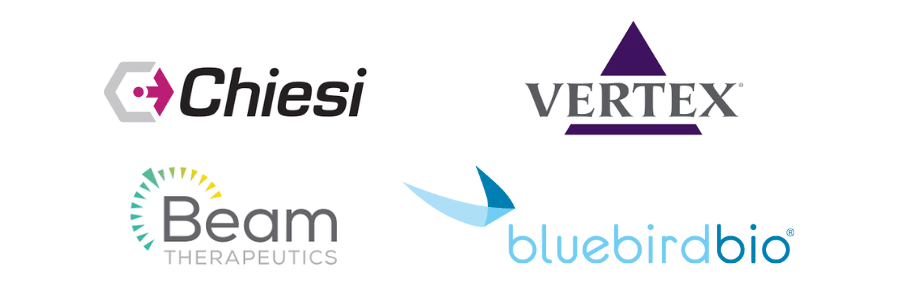Stop Assuming, a Conversation with Jas
Uncentering Heteronormativity in the Sickle Cell Disease Community
Sick Cells recently sat down with Jas (pronouns she/her/he/him/they/them)–a sickle cell warrior who is a member of the LGBTQ community–about her experience living with sickle cell disease, what she’d like to see more from her community and what gives her hope for the future. Thank you, Jas, for sharing your story.
Heteronormativity in the Sickle Cell Disease Community
“When we talk about sickle cell, we always talk about who we can and can’t have kids with, right?” said Jas as we discussed what she wants to see change in the sickle cell community as it relates to the LGBTQ community.
“If I have a kid, it’s going to be IVF or it’s going to be a surrogate, so I’m not going to have the same issues. Stop assuming that everybody is straight. Stop assuming that everybody’s going to be having heterosexual sex. Stop assuming that because it’s not always the case. I hate it when they do that.”
Jas is right. Heteronormativity has a significant impact on LGBTQ+ healthcare patients. From treatment disparities to lack of trust in physicians, there are many layers to the experiences of sickle cell warriors in the LGBTQ+ community, many of which Jas spotlighted in our conversation, including the importance of language when communicating with members of the LGBTQ+ community.
Don’t Call it a Lifestyle
As we work together to make the SCD community more inclusive, a good place to start is shifting the language we use when discussing our LGBTQ+ SCD community peers.
“Don’t call it [being queer] a lifestyle,” said Jas. “Me being vegetarian for four years was a lifestyle because I chose to do that. I didn’t choose to be gay. I’m choosing to be happy. I’m choosing to date who I want to date. That’s not a lifestyle, though.”
Cory Lewis, Program Coordinator at Sick Cells, aligned with Jas’s comments.
“I definitely think that’s something we need to emphasize more when it comes to our community,” said Lewis. “There are certain word and language choices that some may not see as offensive but when you think about that word ‘lifestyle’ it means choice.”

Fostering a Closer Community
While fostering an inclusive community is a constant work in progress, Jas shared she finds hope in the fact that her sickle cell warrior peers are becoming more open about their experiences with the disease.
“I think just the community in general, both the regular sickle cell community and the queer community, we’re starting to kind of open up and be honest. We’re getting out there instead of just being quiet about it [having sickle cell]. A lot of people are starting to educate themselves more, so they’re not as ignorant as they used to be.”
Together, as we continue to elevate the voices of the sickle cell community, it’s essential that we center the diverse voices of all those who represent the community. Let’s vow to work together as we continue to push the envelope and make progress through raising awareness and changing policies and perspectives.
To read more stories from sickle cell warriors, visit our Faces of SCD page on our website and join our growing community of diverse Sick Cells ambassadors by visiting https://sickcells.org/ambassador-program/
Published December 2022
